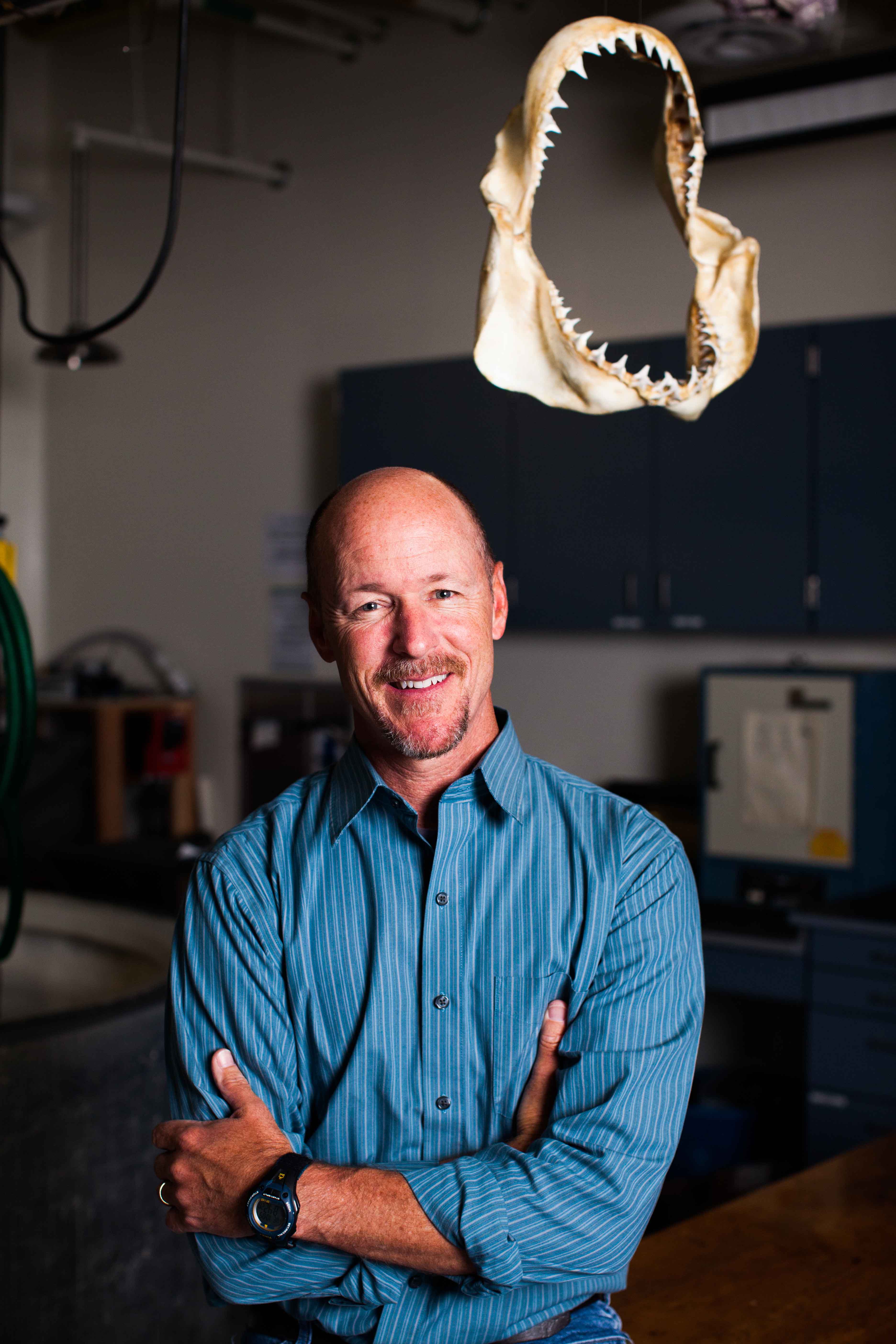A three-day special between BBC and PBS titled “Big Blue Live” will dive right into the choppy waters of shark research with Chris Lowe, director of California State University, Long Beach’s Shark Lab.
Lowe, a professor of biological sciences at CSULB who became the lab’s director in 1998, studies trends and patterns in shark migration, feeding and ecology using advanced technology to help answer the question, “Why do sharks do what they do?”
This summer, as a part of an ongoing project with marine biologists from Monterey Bay, Lowe took nine students with him to Northern California to study shark behavior as they began their migration to Southern California waters.
ADVERTISEMENT: Ready to save money on textbooks?
Shop online and save now! — 49er Shops
The Daily 49er spoke with Lowe about the documentary, his role and where his research has led in his study of shark behavior.
Can you tell us about the documentary and the role you serve in it?
The focus is on Monterey Bay and its ecosystem… My part is focusing on white sharks because they’re an important part of that ecosystem. Where we come into play is that white sharks feed in the Northern California coast, but they come to Southern California to give birth to their very own, so it’s really Southern California that is the nursery for white sharks. That’s how we got involved in the show.
Why do the sharks come south for nursing?
Many of the sharks come to the south… because of the high productivity. Our beaches, especially along our coastline, are very productive typically in the summer. The water is warm [and] it’s usually shallow. It’s our hypothesis that they come to our coast for nursing, and Baja as well because it reflects the type of waters we have in Southern California… We’ve noticed that in the past two years, our waters have been unusually warm and the sharks are behaving different… So we think that the change in behaviors is attributed to the El Niño-like conditions we have in our waters.
How do the conditions affect the Sharks behavior?
These young sharks are looking for warm waters because it helps them grow fast and there is usually more food, typically in those areas. Now in the past we’ve found, from tagging these sharks, is that in the winter when the water temperatures drop, typically below 60 degrees, they get cold and they migrate south to Baja. Where they end up in Baja is typically the same temperature of water than we have in the summer. The sharks will spend the whole winter there, and in the spring or summer, many of the sharks will migrate back up north. But for the last two years, pretty much none of the sharks have [migrated south]. And that’s because the waters haven’t reached below 60 degrees. But that may not be a bad thing, it just means that they’re not getting cold and they’re not migrating to warmer waters.
“Big Blue Live” will air at 8 p.m. PDT on PBS starting Aug. 31.




